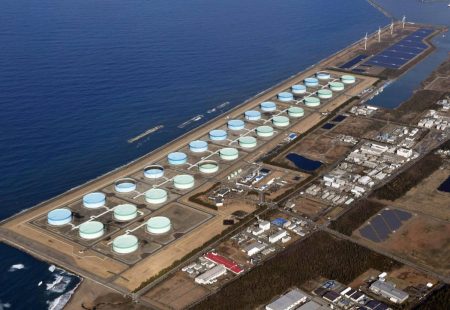
05 February 2014, Lagos -Nigerian banks, after having their fingers burnt in the past, seem to have finally awaken to the needs and opportunities in the energy sector, and have over the last three years committed about N5 trillion to finance major deals in the sector.
The level of the banks’ commitment in energy – oil and gas and power specifically, is higher than the yearly budget of the country for the last two consecutive years, and also higher than the N4.6 trillion budget proposed for 2014.
Prior to this, accessing funds to finance high capital-intensive projects proved to be a challenging task for energy firms in Nigeria, a situation which helped stifle the growth of indigenous companies, the sector and the economy in general.
According to experts, but for increased activities by Nigerian banks in the energy sector, the Local Content initiative would not have been successful, while foreign firms with huge financial backing from international financial institutions would have taken over the entirety of the Nigerian energy industry, especially in the recently concluded power sector privatisation.
According to them, Nigeria would have been denied the benefits in the sector, such as the profits and the interests payable on loans which would have been repatriated out of the country.
CBN takes credit
speaking with Sweetcrude, Director, Corporate Communications, Central Bank of Nigeria, CBN, Mr. Ugochukwu Okoroafor, said the increased activity of Nigerian banks in the energy sector was engendered by the apex bank, which participated actively in putting forward the power sector reforms that actually paved the way for the inflow of finance to the sector.
He said the CBN also laid the groundwork for Nigerian banks to be involved in the process through the provision of funding.
According to him, hitherto the power sector was largely a rigid and relatively inactive sector, where there was only one major player, the Power Holding Company of Nigeria, PHCN.
He added that this led to the decision to deregulate the industry, revamp the regulatory framework, and also usher in private operators to play in that sphere.
“At CBN we are very active in the reforms that led to the emergence of the new National Electricity Regulatory Commission, NERC, and also the reforms that led to the concessions, the sale of the generating companies (GENCOS), and then the concessions and of course the Manitoba Transmissions Company of Nigeria, TCN arrangement. So, CBN has been very active there,” he added.
Okoroafor disclosed that financing in the power sector was kick-started by the introduction of the Power and Aviation Intervention Fund, PAIF, which made funds available at a very low interest rate for onward lending to stakeholders in the sector.
Okoroafor, also disclosed that between N60 billion and N70 billion were yet to be disbursed under the scheme.
He said, “We have made the sector attractive for intermediaries, those who have finance and want to intermediate. We want to make funds available for players, and of course this played out during the time of the sale of the GENCOS and the distribution companies, DISCOS, and people who bought these assets got money from the financial system, specifically the banks to help finance those transactions.”
On the issue of increased funding demands from the energy sector, he said, “We know that there are challenges moving forward; those challenges will come of course from continuous sources of funding. There is a need for us to think through those challenges because they are going to be quite massive if we are to realise the objectives of our new power reforms.
“But definitely it is on the way, and we are working with all the interested groups to make sure that Nigeria gets the kind of power sector it truly deserves.”
Funding over the years
Figures obtained from the latest Financial Stability Report released this year by the CBN, and from other documents from the apex bank, revealed that between January 2011 and June 2013, Nigerian banks had disbursed about N163.1 billion to fund 35 power projects.
The Nigeria Deposit Insurance Corporation, NDIC, on the other hand, in its current annual report, disclosed that banks gave out credit facilities totaling N3.443 trillion to oil and gas firms in two years, 2011 and 2012.
Furthermore, the NDIC Report stated that as at the end of 2012, the exposure of oil and gas firms to banks in the country stood at N1.913 trillion, and about N1.53 trillion in 2011.
Also, the CBN said the N163.1 billion disbursed under the Intervention Fund, provided an opportunity for banks and a window to finance power sector projects.
He added that PAIF also helped to restructure and refinance outstanding facilities in the aviation sector on a long term basis of 10 to 15 years at a concessionary interest rate of 7.0 per cent.
According to the CBN, the Fund helped in relieving banks of the burden of Non-Performing Loans, NPL, on their balance sheets, and improved the credit rating of the beneficiary institutions, thereby providing them access to additional funds for their operations.
The increased funding activities came in the aftermath of the crisis that engulfed the Nigerian banking sector between 2009 and 2010, where a number of banks were hurt from huge non-performing loans recorded by a number of companies, chief among which were energy companies.
The Federal Government had to set up the Asset Management Company of Nigeria, AMCON, to acquire the non-performing loans from the banks, to help them to stabilise and clean up their books.
Following the cleaning of their books through the CBN’s involvement, the banks were able to participate actively in the sale of the assets of the defunct PHCN; providing about 70 per cent of funds used by investors in acquiring the assets.
Assets sale
The Chairman, Technical Committee of the National Council on Privatisation, NCP, Mr. Atedo Peterside, stated that about $3.3 billion (N528 billion) was realised from the sale of the generation and distribution companies, noting that a bulk of the funds came from Nigerian banks.
He said, “$3.3bn should accrue to FGN coffers from these PHCN Gencos and Discos transactions. If the participants and financiers respected the financial rules put in place for these transactions, then a maximum of 70 per cent of this total would have been financed through debt/loan instruments.
“We know that the lion’s share of the financing came via Nigerian banks, and so our banking industry is now a major stakeholder and a long term player in the Nigerian power sector.”
Banks’ chief executives react
Speaking on his return from the just concluded, World Economic Forum in Davos, Switzerland, the Managing Director, United Bank for Africa, UBA Plc, Mr. Philip Oduoza, said the bank staked about N112 billion ($700 million) in the power privatisation.
Oduoza, in a statement made available to Sweetcrude, said the fund was used to support investors seeking acquisition of assets in the newly privatised power sector of the economy.
He further stated that the Nigerian power sector is a growth sector where the bank plays very big.
On his own part, the Managing Director, First Bank of Nigeria Plc, Mr. Bisi Onasanya, told Sweetcrude that the bank has set aside about N60 billion to finance the activities of indigenous contractors and companies in the energy sector, in line with the local content initiative of the Federal Government.
According to him, the fund will empower and position the contractors and companies in the sector to benefit from the chains of activities in the industry, to promote growth and foster social development.
He said, “As part of our contributions to the growth of SMEs in the oil and gas industry, First Bank, through Shell Contractors Support Fund, SCSF, and the Shell Kobo Fund, SKF, provided about US$1 billion (N160 billion) and N1 billion respectively, to finance all contracts awarded by Shell Petroleum Development Company, SPDC, to support their SME contractors and other contractors from their host community as a way of giving back to society.
“Through our various finance schemes, we have helped our customers grow their businesses and improve efficiency.
“For instance, we were able to grow the business of one of our customers after executing a product quality and management system, PQMS contract of N50 million and invoice discounting facilities, IDF contracts of N16.5 million, and $103,000 that it had been awarded in October 2011 by a leading international oil company, IOC.
“Upon the successful completion of the contract, the same IOC awarded another contract valued at N500 million to the company for their manpower supplies, MAPO contract.
“As at year end December 2012, the company’s workforce has efficiently grown from 16 to 27, excluding five expatriates.”
Exposure threats
However, Chief Executive Officer, Lambeth Trust & Investment Company Limited, Mr. David Adonri, argued that it is disturbing to hear that banks are still exposing themselves to the energy sector in such a manner that could threaten their existence.
He said, “Those affected have failed to learn from the past. Any bank over-exposing itself to the petroleum industry does so at its own peril because government’s control of that sector is a recipe for commercial failure.
“The petroleum sector can only become viable when it is completely deregulated and privatised. If the balance sheet of any bank is damaged as a result of excessive risk taking, the CBN and NDIC should liquidate it and the management made to pay for their recklessness.”
Continuing, he said, “Considering the short maturity profile of banks’ deposit liabilities in Nigeria, it is inconceivable that they will venture into financing electric power projects which by nature are long term.
“The mismatch in financing will definitely result in bad debts. Electric power infrastructure rehabilitation and development requires medium to long term funds, which are obtainable from the capital market and Development Finance institutions.”
Reacting to this, CBN’s Okoroafor said, “We are aware of the concentration risk. There is also the capacity risk; for instance if you put money in a sector and you do not have people who would turn that money around.
“We are helping in raising or continuing that conversation by bringing all entity together to make sure that everybody is fully in the picture.
“Though we are not a fiscal authority; some of the things we do are to ensure that there is stability in the system. We want to make sure we provide stability. Financing is something that those that are in that kind of business should be in the position to handle.
“Our mandate is stability, sometimes when we do these things; we do from the point of view of bringing stability.”
How the banks fared
The current financial statements of the banks reflect their increased confidence in the energy sector, and have displayed improved capacity on their part to handle larger transactions in energy, even as they tightened their exposures to the sector.
Statistics revealed that while some banks increased their lending to oil and gas, others preferred to do so for power.
Specifically, First Bank increased total exposure to oil and gas to about N559.343 billion in 2012, up from N356.6 billion in 2011.
But UBA’s exposures to the sector reduced to N131.5 billion in 2012, from N150.033 billion in 2011, while its exposure to power and energy also reduced to N15.357 billion, compared to N18.677 billion in 2011.
Zenith Bank Plc also increased lending to oil and gas in 2012 to N170.9 billion, up from N160.85 billion in 2011.
But the bank significantly reduced lending to power to about N4.111 billion in 2012, down from N22.01 billion in 2011.
This may not be unconnected with the over N2.262 billion it recorded as Non-Performing Loans from the energy sector, with oil and gas accounting for N2.076 billion in 2012, down from N9.258 billion in 2011, and about N186 million to the power sector in 2012.
Similarly, Access Bank Plc’s total lending to the oil and gas sector rose to N189.196 billion in 2012, up from N153.763 billion in 2011, while its exposure to power nose-dived to N1.093 billion in 2012, from N2.255 billion in 2011.
Access said it facilitated the importation of more than 30 per cent of petroleum products into the country in 2012, while it also committed the sum of US$1 billion (N160 billion) to support Shell contractors.
The bank also said it is currently facilitating similar Local Content Schemes for other IOCs operating in Nigeria, adding that these schemes are aimed at giving local contractors a greater role in servicing Nigeria’s oil and gas industry.
Fidelity Bank Plc, on the other hand, extended N47.1 billion loan to oil and gas firms in 2012, as against N23.96 billion in 2011, while power firms got N6.05 billion from the bank, compared to N6.57 billion in 2011.
Fidelity explained, “In a show of commitment and faith in the development of the Nigerian local content initiative, we signed a Memorandum of Understanding, MoU, with Shell Nigeria Exploration and Production Company, SNEPCo, to support local contractors towards the actualisation of Nigeria’s Local Content aspiration.
“The initiative is aimed at placing local contractors at the front line for service delivery to the oil and gas industry immediately the implementation of the Petroleum Industry Bill, PIB, kicks in. Our global commitment under the scheme is US$1.0 billion for the first five years of operation.
“The implementation of this initiative will result in demand for Working Capital and Medium to Long Term financing for the local contractors, fabricators and industrialists that employ thousands of Nigerians along the value chain of SNEPCo, as well as help the government achieve its objective of increasing domestic crude oil production to 4.0 million barrels per day by 2020.
“Our customers in ancillary industries would also be major beneficiaries as they would have the opportunity to service different aspects of the oil Industry’s extensive value chain.”
Future opportunities
Despite all these, there are still enough funding opportunities for the banks, as Peterside said that about N1.135 trillion is expected to be sourced by investors in the power sector within the next five years, to ensure stability in the supply of power in the country.
He said, “Financing the necessary capital expenditure to fund the incremental 4,284.4 megawatts that is required to achieve full capacity (crudely estimated at $1 million per MW approximately) will cost an additional $4.28 billion (N684.5 billion).
”At an estimated weighted average cost (purchase and installation) of N25, 000 per meter, this amounts to over N150 billion. The bulk of this should be recoverable from the consumer, but then the distribution infrastructure also needs to be modernised and expanded to achieve greater coverage. The 11 distribution companies (Discos) are projecting annual capital expenditures in the region of N60 billion per annum for each of the next five years.”
Already, Oando is considering raising N250 billion from the financial market, through a combination of rights issue, special/private placement of public offerings.
The fund, according to the Group will be used in financing its acquisition of divested assets of ConocoPhilips.
Apart from these, it is expected that the ongoing divestments by some IOCs from some of their assets in Nigeria, and the planned sale of marginal fields by the Federal Government, will throw up a huge opportunity for banks to strengthen their capacity.
A number of indigenous investors have expressed interests in acquiring the divested assets, as well as the marginal fields, which will require huge amount of financial backing to carry through with their plan.
This same scenario will also play out when the Government begins the sale of the Nigerian Independent Power Projects, NIPPs, across the country.
Analysts await whether these funding demands will further enhance banks’ lending capacities or sink them if they were not prudent enough.
-Michael Eboh, Vanguard



